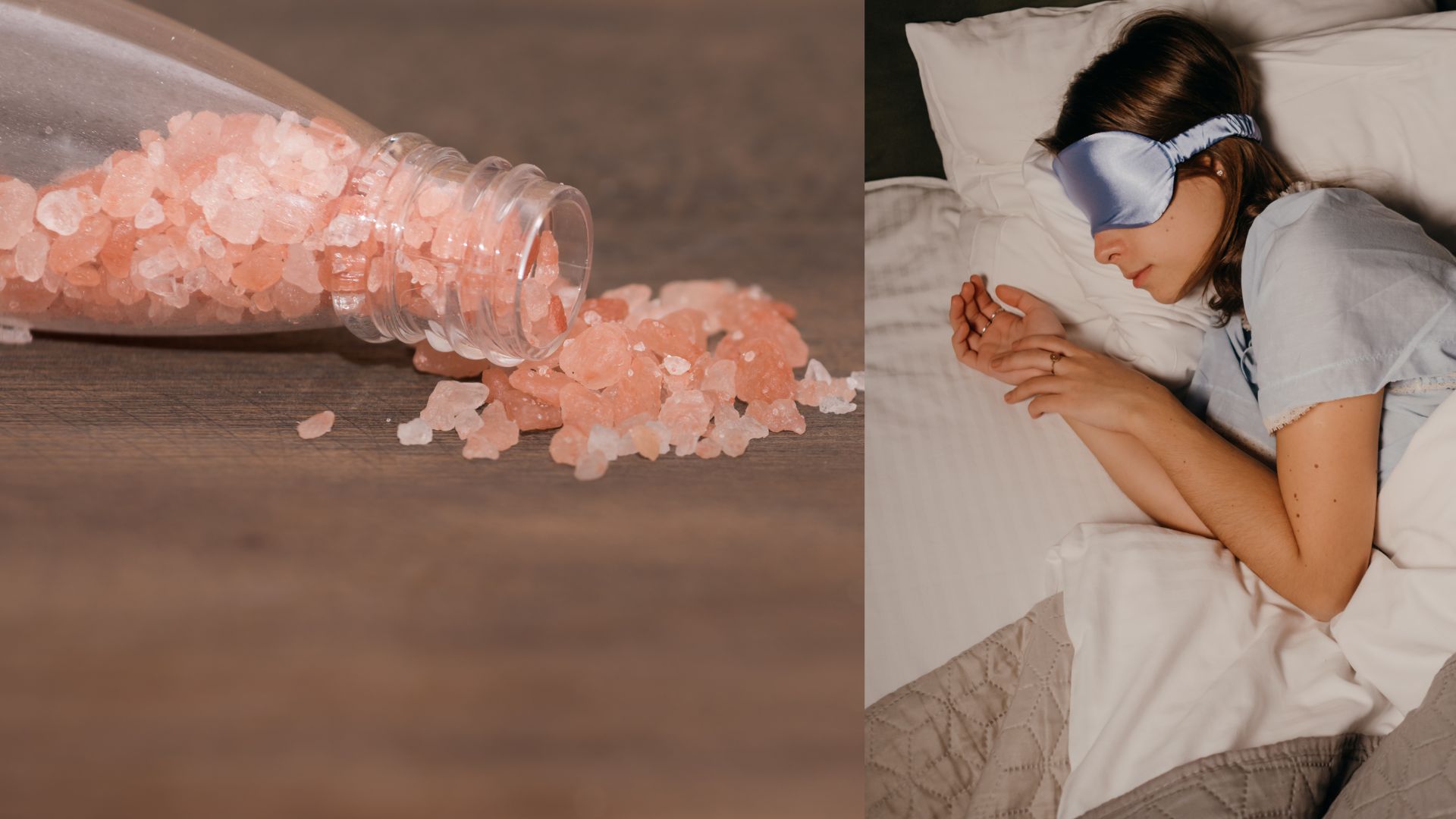
Sleep is the body’s natural reset button. Yet, millions of people struggle with poor sleep, insomnia, or restless nights. While modern medicine offers various solutions, many are turning toward natural remedies. One such remedy that has gained attention is rock salt—often known as Himalayan pink salt or Sendha Namak in India. But can rock salt really help you sleep better? Let’s dive into what science and traditional wisdom say.
Table of Contents
What Is Rock Salt?
Rock salt is a naturally occurring mineral form of sodium chloride, harvested from ancient salt deposits. Unlike refined table salt, it contains trace minerals like magnesium, potassium, and calcium, which give it a slightly different composition and color. Himalayan pink salt is the most popular form of rock salt today.
The Connection Between Rock Salt and Sleep
The idea that rock salt helps with sleep is based on a few key theories:
1. Rich in Trace Minerals
Rock salt contains magnesium and potassium, minerals known to relax muscles and calm the nervous system. Magnesium, in particular, plays a vital role in regulating neurotransmitters that prepare the body for restful sleep.
2. Balances Electrolytes
Proper electrolyte balance is essential for hydration and muscle function. Low sodium levels can sometimes cause restlessness or night cramps. Rock salt, when used in moderation, helps maintain fluid balance and may prevent nighttime discomfort.
3. Regulates Stress Hormones
Some studies suggest that sodium can influence cortisol, the stress hormone. Balanced salt intake may help reduce stress levels and indirectly support better sleep.
4. Improves Air Quality (Salt Lamps)
Himalayan salt lamps are often marketed as natural air purifiers. While evidence is limited, some believe they release negative ions that improve air quality, reduce allergens, and create a calming atmosphere—potentially aiding sleep.
What Science Says
While traditional practices and anecdotal evidence support the use of rock salt for better sleep, scientific studies are limited. Here’s what research indicates:
-
Magnesium and Sleep: Strong evidence links magnesium with improved sleep quality. Since rock salt contains trace magnesium, it might contribute, but the levels are relatively low compared to supplements.
-
Sodium and Sleep Patterns: Very low sodium diets may lead to fragmented sleep, while excessive sodium can raise blood pressure and cause sleep disturbances. The key is moderation.
-
Salt Lamps: Scientific support for salt lamps’ sleep benefits is minimal. Most benefits may come from the soothing ambiance and warm glow rather than ionization effects.
How to Use Rock Salt for Better Sleep
If you want to explore rock salt as a natural sleep aid, here are a few safe ways to incorporate it:
-
Warm Rock Salt Water Gargle – A traditional remedy for relaxation before bed.
-
Rock Salt Bath – Adding rock salt to a warm bath may relax muscles and ease stress.
-
Rock Salt Lamp – Use as a night lamp to create a calming bedroom environment.
-
Cooking with Rock Salt – Replace refined table salt with rock salt in moderation for better mineral intake.
Precautions
-
Avoid excessive intake, as high sodium levels can increase the risk of hypertension and heart disease.
-
If you have kidney issues, high blood pressure, or are on a low-sodium diet, consult your doctor before making changes.
-
Salt lamps should be used as complementary, not primary, sleep solutions.
Rock salt alone is not a magic cure for sleep problems, but it may support better sleep indirectly by promoting relaxation, improving hydration, and providing trace minerals. When combined with good sleep hygiene—like maintaining a regular schedule, reducing screen time, and creating a calming bedtime routine—rock salt can play a small but beneficial role in improving sleep quality.
In short: science says rock salt can help, but only as part of a holistic approach to better sleep.


